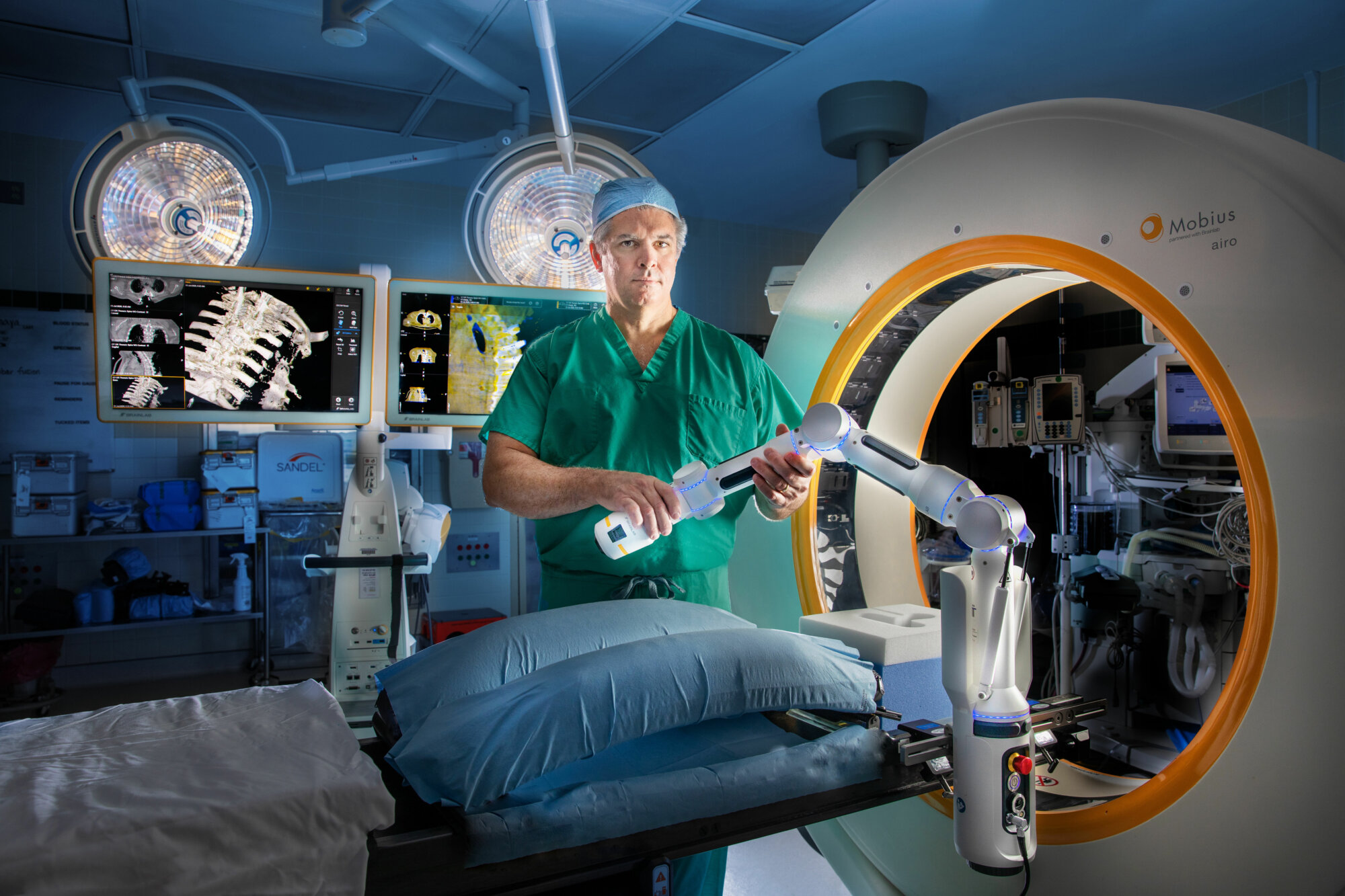
MedStar doctors in D.C. area the first in the Western Hemisphere to use a Cirq robotic arm to assist spinal surgeries.
“It’s enormous. It’s a game changer,” said Dr. Edward Aulisi, chair of neurosurgery at
MedStar Washington Hospital Center.
The system includes a scanner that makes a 3D map of the patient’s problem area for use with a computer’s alignment software.
“The robot can read that and so long as you get it close to the mark, it can actually move itself into the exact, correct position, which allows us to get to parts of the spine, which normally you can’t get to on your own,” Aulisi said.
“In the past, we would get close, using an X-ray machine, which is a two dimensional image,” he said.
Being off by even only a couple of millimeters can have serious consequences.
“You’re working in and around nerves, that if they’re damaged, they don’t necessarily grow back, especially working around the spinal cord,” Aulisi said.
He likens the new process to being able to hang a picture on the wall knowing exactly where the studs are before you drive a nail into the wall.
The robotic arm, moved into position manually, can also be used passively to hold things perfectly steady while the surgeon uses various tools.
Pinpoint precision means a more successful surgery with smaller incisions, quicker recovery time, less time in the operating room and fewer infections because, Aulisi said, the amount of time you spend on the operating table correlates with the infection rate.
When procedures involve using screws for spinal fusions — along with rods or plates to add extra support and length and to immobilize part of the spine by holding bony structures together — there’s an added benefit for the patient when a scanner can immediately determine the operation’s success.
“Now we know exactly what’s going on at the time of the surgery, even before the patient wakes up,” Aulisi said. “It prevents you from having to take them back for a second surgery to revise it later on.”
The system costs about $2 million.
MedStar Georgetown got a Cirq arm in September, and the director of spine surgery, Dr. Faheem Sandhu, said in a news release that it is helpful tool for screw placement and a good addition to the robotic spine program already in place.
MedStar Washington Hospital Center has used the arm in more than 50 procedures since use first began over the summer.
“We now have two devices before anybody else (in the U.S.) has their first device, and we’ll be buying our second one at this hospital soon,” Aulisi said. “It’s great technology, and there’s more to come. It’s going to get better and better.”
It’s expected the technology eventually will be used by MedStar brain surgeons to assist with surgeries.








